British Ambassador Andrew Dalgleish Discusses Potential No Deal Brexit
Andrew Dalgleish talks about the unwanted yet still possible No Deal outcome, what this means for Croats in the UK, what it could mean for Brits in Croatia, and how, if at all, Brexit will affect Croatia's tourist industry.
While many British citizens in Croatia remain worried for their future in the country, rest assured that we at TCN, along with the British Embassy in Zagreb, will continue to do our absolute best to keep you informed of any changes, should they occur at all, to your rights to residence, access to healthcare, the labour market, and your access to Croatia's social security system.
We have already written numerous articles on what Brexit is likely to mean when it comes to British citizens living in Croatia with regulated status (biometric residence permit of either temporary (privremeni) or permanent (stalni) residence (boravak), which was your right to claim as EU citizens. I'd like to preface this by saying that there is no need to do anything but remain calm despite the sheer lack of information provided to you, we're fully aware of your concerns and will seek to assure you as best as we can along the way.
MUP has assured TCN in private correspondence with me that British citizens, even in the unwanted event of a No Deal Brexit, who have a valid residence permit of some kind, will not be seen as illegal persons living on the territory of the Republic of Croatia on the 29th of March this year. Please click here for the full article on that, as well as ways to safeguard and prepare, here for MUP's statement to Balkan Insight, and here for Paul Bradbury's meeting with Andrew Dalgleish, the UK Ambassador to Croatia, which took place a few weeks ago. Should the UK leave with May's deal on the UK's Withdrawal Agreement, click here to find out what that means for you.
Although the following article doesn't talk quite enough about the rightful worries and fears of Croatia's resident Brits, the number of which is well under 1,000, Andrew Dalgleish sits down to discuss what a potential No Deal Brexit might mean should it occur, and sought to reassure that British tourists, who are among the most numerous European visitors to Croatia, will continue to come.
As Mark Thomas/Slobodna Dalmacija writes on the 19th of February, 2019, before Britain's (planned) exit from the European Union scheduled for March the 29th this year, we talked with UK Ambassador to the Republic of Croatia, Mr. Andrew Dalgleish, to find out what the future of the always positive relations between Croatia and the UK are set to become.
"Croatian citizens living in the UK shouldn't worry if Britain leaves the European Union without agreement because the [British] Government has taken all the measures to protect [EU] citizens [living in the UK at the time of exit]," the ambassador stated.
The British Government ''is making a huge effort to reach an agreement'', and the outcome of Brexit for Great Britain has two scenarios, at least in this phase of negotiations; the UK leaving the EU, should it continue to stand by its current position, either with or without agreement. Whatever the solution turns out to be, it will bring new questions, as well as new solutions, in terms of citizens' rights.
If Britain leaves the European Union on March the 29th, how will it affect the status of Croatian nationals living in the UK in the case of a No Deal Brexit?
Since the beginning of the negotiations around Brexit, Prime Minister Theresa May has been very clear on this issue: Citizens should not be bargaining chips, the lives of people and their needs are what is really important here. Then, when we came to the end of the negotiations, the prime minister said that regardless of what would happen [regarding the UK's withdrawal from the bloc], Croats and other citizens of European Union countries (EU27) who are legal residents of the United Kingdom of Great Britain and Northern Ireland will basically hold the same status and enjoy broadly the same rights as they did before the 29th of March, 2019.
Croats should not immediately see any change in their current status in the UK. This is a real indicator of how much Britain truly does appreciate the citizens of other European Union countries living in the UK. No matter what other EU members do in return, the prime minister has been very clear on this matter.
After March the 29th, EU citizens will be able to live normally in the UK, enjoying continued unimpeded access to all the social, health and education services just as they have until now, and the direction further negotiations will take is yet to be seen. There will be procedures to explain to citizens what the futre will look like after Brexit and we want to let them know that we do care about everyone.
At this point there are two possible Brexit scenarios, "Brexit with an agreement" and "Brexit without an agreement", and whatever option is accepted will affect what will happen on March the 29th...
Yes, the British Government is absolutely devoted, with all of its efforts, to reach an agreement. How exactly this arrangement will look remains to be seen. However, it is crystal clear to the government that reaching an agreement is the best way to leave [the EU].
Also, we as the government are highly responsible, which means that we have to prepare for this second scenario [No Deal Brexit] that we wouldn't want, but which could happen. That's why we want to reassure Croatian citizens living in the UK that they don't have to worry if Britain does leave without a deal, because the [British] Government has taken measures to reassure them that they do care about them.
Agreement or not, how will Brexit affect your role as [UK] Ambassador?
Of course, it's already influenced my ambassador's role. I was all set to be the ambassador before the referendum was actually held, I actually arrived in Zagreb three weeks after the referendum. Of course, that means all my preparations changed overnight. But Brexit is real and we've got to face it.
Relations between Great Britain and Croatia have lasted longer outside the European Union than they have within it. Brexit will certainly be a challenge because many of the questions related to our two peoples are being solved at a table in Brussels.
Since we [Britain] will not be sitting at the table in Brussels again, we will make even more of an effort in the future to get London and Zagreb to directly negotiate, more than we did before, so there's a chance there.
How are the negotiations with the Croatian Government progressing, if an agreement [between the UK and the EU] is not reached, and what about the rights of British nationals in Croatia?
Prime Minister May was very clear at the very beginning of negotiations that the [British] Government would take care of the rights of European Union citizens in the UK after March the 29th, so we hope that other [EU] Member States will act in the same way.
The European Commission has stated that it hopes that, after Brexit, all EU member states will be ''generous'' and offer British citizens good conditions, however, each of them will do so in their own way. Discussions are being conducted not only with Croatia, but with other EU member states. Of course, the Croatian Government, as well as the British Government, is hoping for a scenario in which the UK withdraws from the EU with a deal.
It's very important to point out that in the case of a No Deal Brexit, there are many technical questions that require answers, some of which are what it will mean to be a legal citizen (resident) here, to gaining the right to health care, and many other issues.
All of this requires very demanding preparation and this is what we're doing at this moment with the Croatian Government.
Do you think Croatian tourism will suffer a sort of shock after Brexit?
"There is no intent on either side of causing problems in people's lives, going on holiday is a natural thing that people need. No government in these negotiations has said that obstacles should be put in place in order to make things for the tourist industry more difficult in the future. Of course, if there's an agreement, then every side and every country knows where their place is.
In the event of a No Deal Brexit, we must take care to resolve all of the technical issues and that the British [continue to] come to Croatia on holiday, which is the intention of both Croatia and the UK. I don't see the probability of any problem, as long as we're all doing our jobs in the meantime.
Make sure to stay up to date with everything you need to know about Brexit and Croatia and what might alter for you by following our dedicated politics page.
Click here for the original article by Mark Thomas on Slododna Dalmacija
From London to Croatia: A Foreign Teen's Adventures in Zagreb
The top three questions I get asked to this day by Uber drivers and colleagues alike are, ''What do you think of Zagreb?'', ''Why did you come here?', and ''What do you do here?''
In a brazen attempt to address the final question, I thought long and hard about what I could expose, what crazy stories I could tell, without telling too much. A few ideas came to mind that perfectly encapsulate my last year here, shedding light on what a foreign teen with no connections can experience when you give yourself up to chance.
From meeting strangers in the night to accidentally taking the wrong train to Budapest, I make up for the lost time spent in my room in England by playing into Zagreb’s strengths - drinking, socialising and working. It got to the point where I asked my friend “What I should I do tonight, I have nowhere to go!” and she responded crassly “How about going to that place that, you know, you PAY FOR ON A MONTHLY BASIS?, that little place called your apartment!”.
She gives good advice sometimes. I’ve managed to mould something out of nothing here and with little language skills thanks to those around me. I want to hammer that in, not at all to brag but because having read post after post in expat forums and online about “I want to travel to X place but I’m afraid of not making friends, I’m afraid of being lonely or stuck”, I can’t help but yell “It’s completely possible”.
One night I like to remember in particular, I found myself sitting tipsily in the corner of a karaoke bar with little recollection of the journey there. I was sat with people I had met only twice before (coffee once and that New Year’s night), drinking a decent 15 kuna glass of vodka and coke while periodically stealing sips of the friend next to me’s beer. He noticed eventually and bought me my own.
We were in an edgy and low-key karaoke bar, called Pračka (Croatian for sling or catapult), hidden in the centre of Zagreb. Let me clarify, I had little recollection of the journey there, in part due to my drunken state, but mainly because the bar was located on some street that looked like all other streets around it, at the bottom of a block of flats, indicated only by the entry door - a big, black metal door covered in stickers. I’m not sure how people manage to spot this sober let alone three Tomislav beers in to a night out.
I’ve come to have a few stand out memories of Pračka (Edit: I’m still unable to locate the bar on my own). One night was spent with a tram obsessive, a girl, and a man I’ve come to nickname Berlusconi. It was my first introduction to turbo folk and first lesson in how to awkwardly sing and dance along to a song you don’t know - a very important lesson for all new expats! As a result one of favourite folk songs is Kad Sam Bio Mlad by Riblja Corba.
The second was at an office party. Late into the night, I was waiting at the front of the queue for the bathroom. In an instant one of the doors threw open in a loud clamour. Out of the doors fell a couple, mid doggy style, who slammed their backs against the wall of the bathroom in full view of the entire queue and part of the club. We all burst into laughter and let me tell you, in this whole scene the couple were not phased (only a little surprised at the fall) and did not let it ruin their.. moment.
They promptly glanced at the crowd and closed the doors once again. Slightly taken aback, I accepted it for what it was and carried on with my queue waiting and got back to our group. The next singer was up, and I couldn’t help but laugh when I saw who rushed onto the stage but the same girl going at it in the ladies. A little unprepared she hurried onto the stage fixing her hair and proceeded to absolutely kill the song with the whole crowd singing with her. Girl, I salute your bravery.
What else have I done, well I've been travelling. First to Spain and by the time this is up I'll be bathing in the thermal baths of Budapest. What I love about Zagreb in addition to everything else I ramble about - it's a great location for taking a bus or BlaBla car around Europe for an affordable price.
Gone are the days of scraping together £200 for an all inclusive holiday to somewhere in Spain (Inbetweeners style) drinking as many cocktails as you can at the breakfast buffet to make the most of the all-inclusiveness. A friend of mine will often take a day trip into Italy when she has the time off work, while another friend just last month came back from a 5 day ski trip in Bosnia.
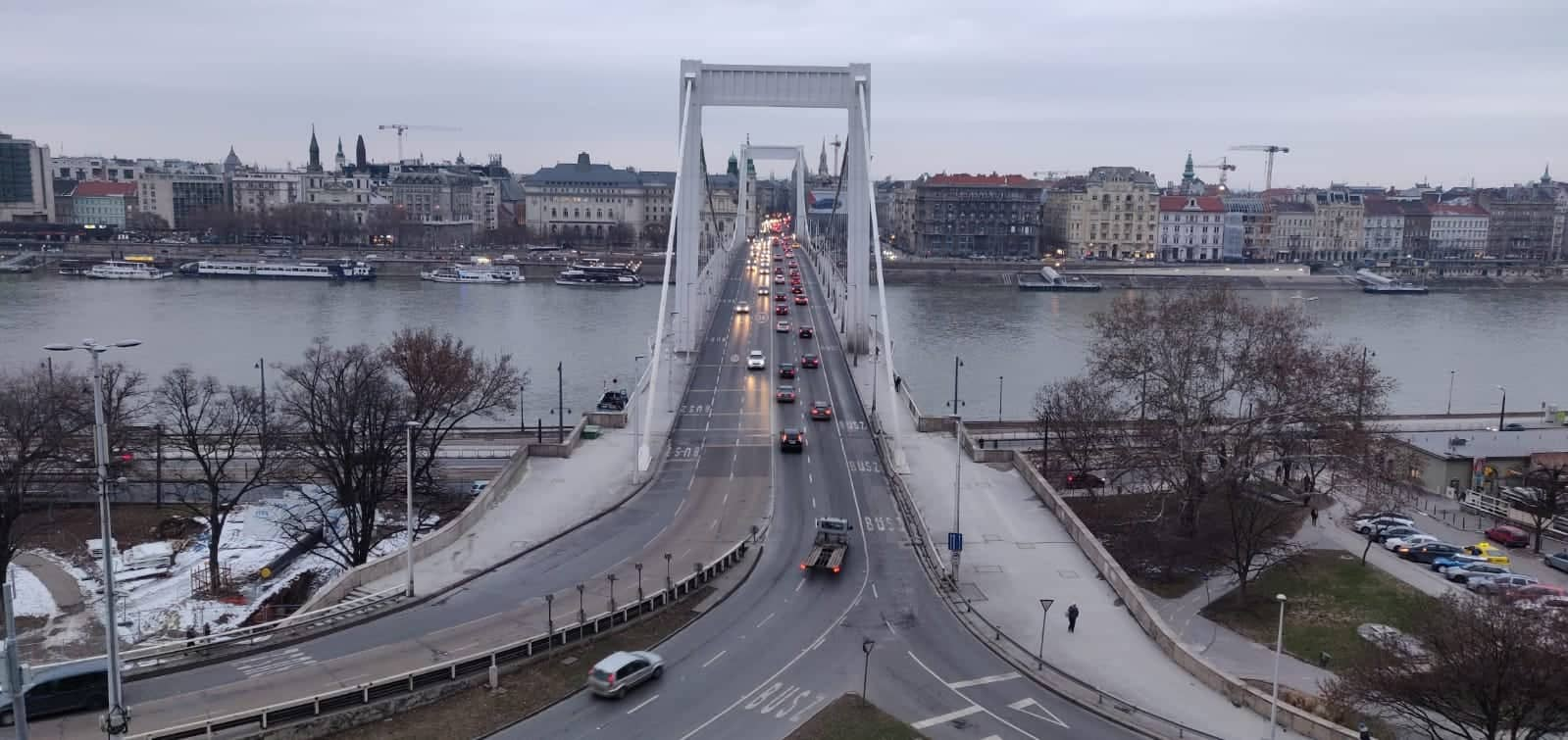
Turning up the notch on the cringe, in true Mira style, trying to answer this question I found myself returning to the question of “Why do I do any of this?”. As a believer in personal privacy online, I find it difficult to write these (not so) monthly posts about my experiences. For the majority, I hope at the very least they are entertaining to read.
For others, I hope they help explain my situation, who I was and what I think about life in Zagreb. But for myself, I must remind myself why I write. I write for the young girl that I was. Hiding in my room, afraid of the world and afraid of giving life a serious chance, but yet desperately yearning for an escape. Typical teenager.
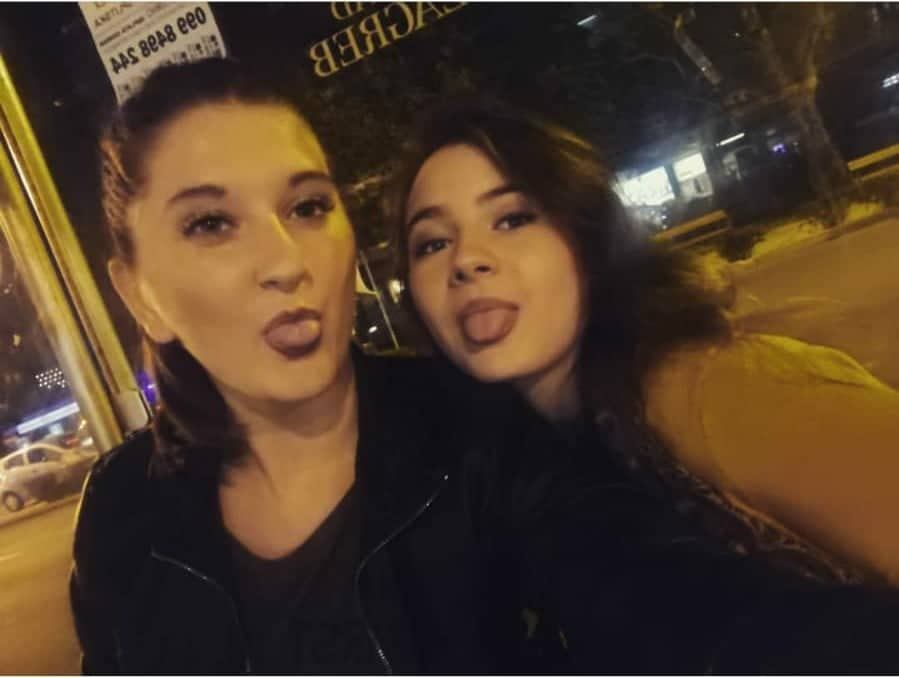
I remember being fourteen trawling through sites about homestays abroad, how to get onto an exchange program, and I was desperate to get out into the world, Japan, Spain anywhere that would offer me excitement. I dreamt of swimming across the channel to France (if David Walliams could do it for charity, then surely I could do it too!). I thought about how I’d pack up my belongings in zip-lock bags so they’d float alongside me as I swam. I dreamt about running away to the eurostar and becoming a lowly waitress in Spain.
Sixteen came and I had been spending my time learning Japanese (you were right mom, it was just a phase). Planning how, when and where to go to become an English teacher there. Eighteen came and universities abroad were the topic of my free time. I write to give hope to the fourteen year old me cooped up in her room dreaming of suicide and life in another world. I write for my friend who, just last year, overcame some of his most fundamental fears and countered his psychological struggles (such as OCD) and travelled around Europe with a group of strangers totally off his own back. Creating memories I can’t help but admire. We were all typical teengers once!
I fantasized until I was finally met with the chance to leave. And so, in a rush against the clock, making the most of these teen years while I can, this last year has been a cacophony of unusual experiences interwoven with shifts at my equally unusual workplace, to create memories I’ll continue to tell.
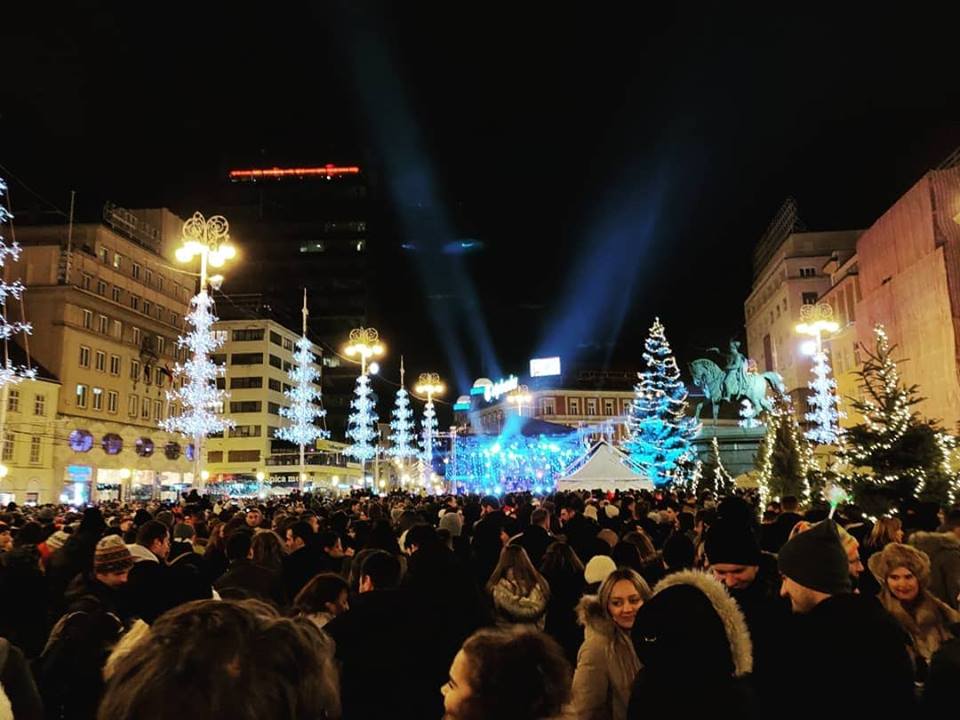
Soon you'll be able to read more at http://miramaughan.com, so watch this space!
Give Total Zagreb a follow for more.
Brexit and Croatia: How Croatia's Brits Should Prepare
We're still not sure how things stand entirely when it comes to Brexit, or whether it will happen at all. Despite the now agonising insanity of this senseless process, let's have a look at the current situation (which will probably have altered a few times before I finish this article. I wish I was being sarcastic).
After a trend of crushing defeats had become the humiliating norm for the enfeebled PM, Theresa May finally had her day (sort of) in the latest vote on various amendments to her withdrawal agreement. MPs voted against no deal - which should effectively take the catastrophic threat of the United Kingdom crashing out of the European Union without a deal in place at the end of next month off the table entirely - had it not been a non-binding amendment.
British MPs also voted against an Article 50 extension, which would have allowed for the two year window allowed for negotiations when a member state declares its intention to leave the bloc to be extended for a period which would have been agreed upon had it passed.
So, what happened in layman's terms? What happened is that the Commons continued the insanity by voting against a no deal, making it clear that the United Kingdom leaving the EU without a deal in place was not in anyone's interest, nor should it be the British Government's policy, but they also voted against extending the time needed for any further negotiations. A bit odd, you say? A bit chaotic? Yes, it is.
Instead, MPs gave Theresa May a mandate to go back to Brussels to attempt to renegotiate the troublesome Irish backstop, which acts as an insurance policy to prevent a hard border between the Republic of Ireland and Northern Ireland. The EU has already stated that the backstop is part of the deal and cannot be opened up again. Britain is, once again, experiencing an impasse. With the now internationally weakened United Kingdom stuck between a rock and a hard place, what does this mean for British nationals living and working in Croatia?
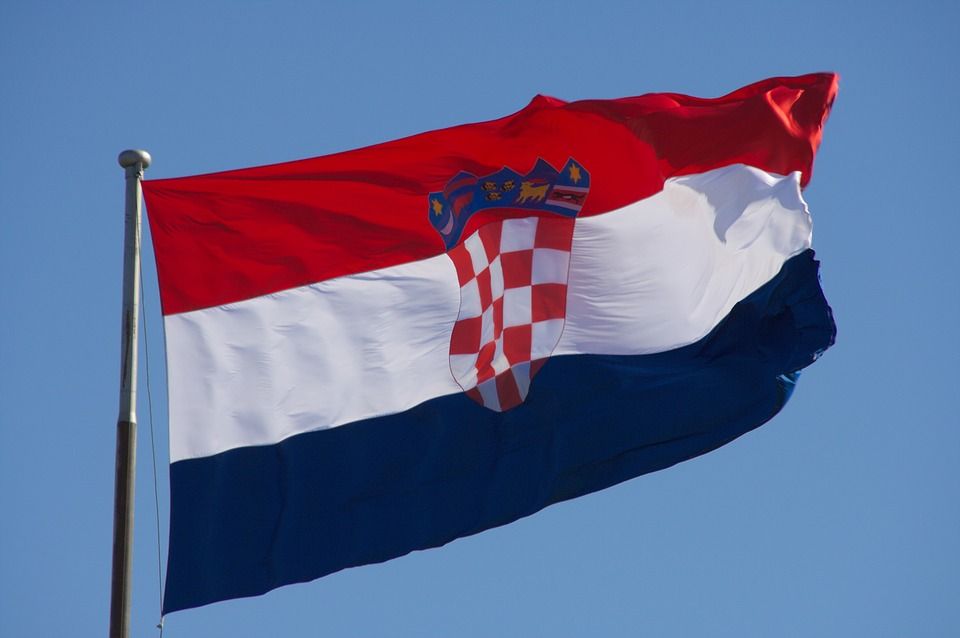
A look at the current scenarios:
Theresa May's withdrawal agreement is ratified by the UK and the EU:
We've already covered what will happen if Theresa May's initial withdrawal agreement ends up being passed, which, as the clock runs down to the rapidly approaching and ominous date of March the 29th, when Britain is due to leave the European Union after over forty years of membership, could still end up being ratified.
If the British PM manages to arrange new terms with the EU regarding the hated Irish backstop, however unlikely, then the withdrawal agreement has decent chances of being ratified later this month. If that happens, the fate of British citizens in Croatia will be firmly secured. Life will go on as normal until the end of December, 2020, when the implementation period ends. If you are resident in Croatia, registered with the authorities and have a biometric residence permit (privremeni/stalni boravak), you'll continue life as you do now. You'll be able to apply for permanent residence as normal after racking up five years of legal residence in Croatia and as such gain almost all of the rights Croatian nationals enjoy, after a further three years, you can also apply for citizenship if you want to. If you already have permanent residence, you're already sorted.
Under May's deal, those with permanent residence will be allowed to leave their member state of residence for five consecutive years without losing their status, which essentially means you have it for life. Read this article for more detailed information on that.
Article 50 extension:
The clock is ticking, and the dreaded Brexit day is fast approaching. A delay is becoming increasingly likely, despite having been voted against recently, it doesn't mean this won't become necessary to avoid a tragic no deal exit. If this occurs, nothing will alter for you until a new Brexit date is confirmed.
EEA/EFTA style agreement:
Several countries, including Norway and Iceland, are in the European Economic Area but are not members of the EU, in fact. These two countries still abide by the four freedoms of the single market in order to obtain unrestricted access to it, one of which is the free movement of people, which means that should Britain opt for some sort of ''Norway-style agreement'' as a too-little-too-late Plan B, the free movement of citizens will remain as it is today. This means nothing will alter for you, and you don't need to do anything.
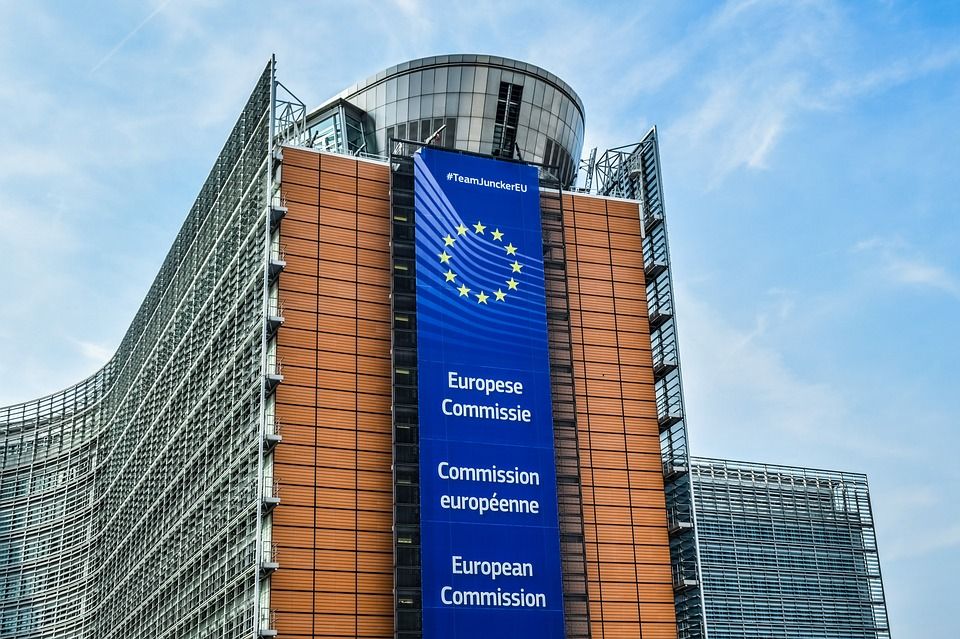
No deal Brexit:
Should the world's fifth largest economy end up crashing out of the world's largest trading bloc without a deal in place, the consequences will be dire for the country's economy. Dark days would be ahead of a Britain all alone in the world, with the threat of the worst economic situation since the recession potentially becoming a reality, all normal thinking individuals want to avoid this horrendous possibility. Such a scenario would have an extremely negative impact on the UK and the EU, and this situation will likely never become government policy. Britain is a European country and needs close ties, and a free trade deal, with the EU.
As I have written before, many EU countries have already come out to reassure British citizens living in their countries that their rights will be protected if a no deal does end up happening, with some such as Malta being extremely generous and offering Brits permanent residency (a renewable document valid for ten years) should this occur.
The European Commission has asked EU member states, including Croatia, to take a ''generous approach to British citizens who are already living on their territories''.
While such comments are a disgraceful abandonment in the eyes of many, especially after the UK respectfully unilaterally guaranteed the rights of EU citizens already living in the UK, all three million of them, the EU cannot make a similar unilateral guarantee in the event of a no deal Brexit as it is not a national body. Despite that, the good intention of the EC/EU is clear - the expectation of member states to protect British citizens who have made life choices based on the treaty rights that derived from their citizenship of the Union.
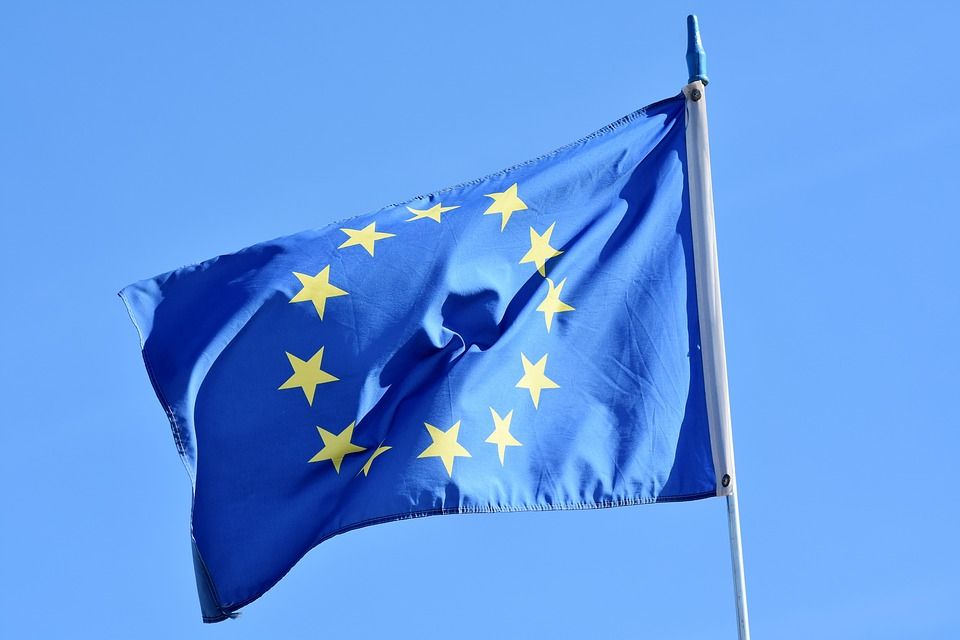
Unlike some other EU countries, Croatia is yet to speak publicly on the matter, but MUP has made clear that Croatia's intentions are entirely in line with the wishes of the European Commission when it comes to fully protecting British nationals who are living in Croatia with regulated status (biometric residence permit) on the 29th of March, 2019, should the UK crash out of the EU with no deal in place. I have been in contact with MUP and I translated their response, which we also published in another article detailing the work TCN will do with the British Embassy to keep information flowing:
''The Republic of Croatia considers that it is of great importance to protect both the citizens of the European Union in the United Kingdom, and the citizens of the United Kingdom in the European Union. The European Commission's intention is to ensure a high degree of tolerance for UK nationals already residing in an EU member state. Such reflections and efforts are in line with the objective of the Republic of Croatia that the citizens of the United Kingdom and members of their families who have a regulated status in the Republic of Croatia are not regarded as illegal persons on the date of their [the UK's] departure from the European Union, that their residence and unimpeded access to the labour market in the Republic of Croatia is allowed. In this regard, the Republic of Croatia will take the necessary measures to regulate the stay of UK citizens who, at the time of the United Kingdom's departure from the European Union, have regulated residence in the Republic of Croatia, in accordance with the European Commission's guidelines.''
Please read this article for further information, including a statement from MUP provided to Balkan Insight which also, along those same lines, suggested that the assurances and guarantees Croatia's 600+ resident Brits need will be forthcoming once the details on issuing new documents are finalised.
Given the fact that London has already unilaterally given rights to all EU citizens in the UK and will enshrine the rights of Croats in the UK into British law, rest assured that Croatia will respond in the spirit of reciprocity when the finer details are ironed out.
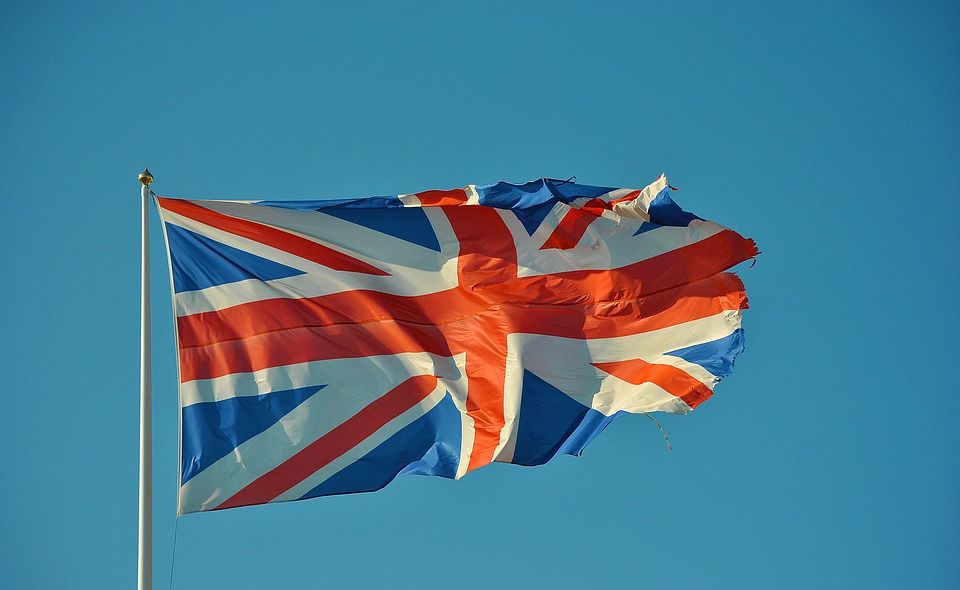
No Brexit at all
This is still a possibility, and should Article 50 be revoked and Brexit cancelled, nothing will alter and we'd remain with the good old status quo. This is unlikely, but remains possible.
What should you do if you live in Croatia to protect yourself against any outcome?
First of all, do not panic. Second of all, read the list below.
1) Make sure you are registered with the police and are in possession of a valid residence permit.
2) If you move, make sure to inform the police of your move at the local police station in your new city or town.
3) Make sure you have any documents you need, these will vary in different situations. For example, if you have purchased a house or taken out a rental contract, make sure to keep any papers that attest to that fact.
4) Convert your British driving license to a Croatian one here.
4) Make sure to stay up to date by following the British Government's Living in Croatia page for updates as and when they come. Sign up to receive an email about any updates.
5) Read this article and follow the links specified for information updates, the Brexit hotline, the Facebook page of the British Embassy, and an email contact.
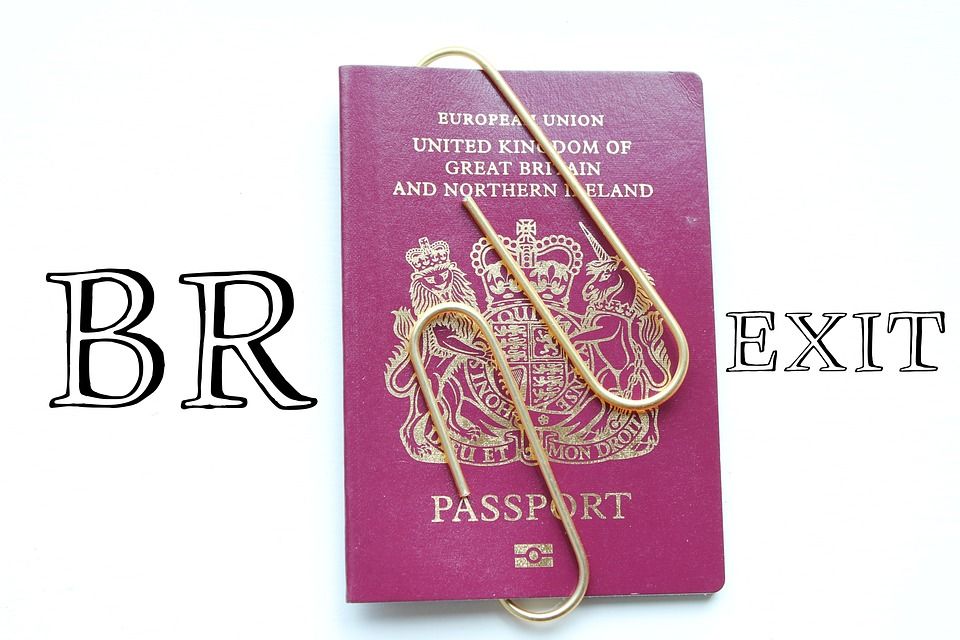
Just to add, the EU recently confirmed that British nationals will NOT need a visa to travel to the EU for short trips (90 days in any 180 day period) even in the case of a no deal Brexit. If you're in possession of a valid residence permit from an EU country, you will not be subject to the rules placed on British citizens living in the UK travelling to the EU for holidays.
The Schengen area is currently made up of 26 countries and Croatia applied to join back in 2015, two years after its accession to the EU. Croatia is not yet in Schengen, but hopes to enter soon. The Schengen area, named after the Schengen Agreement, will facilitate visa-free access for British citizens on short stays of less than 90 days. Again, if you are a registered resident of any of the Schengen countries, this rule will not apply to you regardless of your nationality.
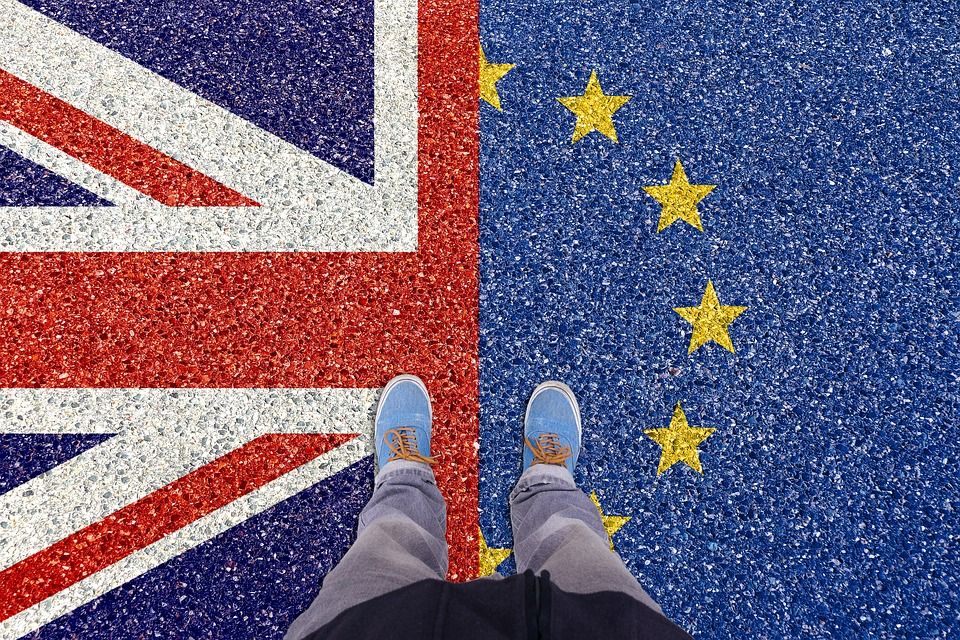
Make sure to stay up to date by following our dedicated politics page, and by following the British Embassy in Zagreb with the #UKNationalsinCroatia tag.
Ivica Todorić Discusses Mercator Purchase, Financial Situation, Agrokor
Ivica Todorić, the former Agrokor boss, thinks that the largest Croatian company, which once lay in his very hands, was destroyed by politics, and not a bad economic policy.
As VLM/Poslovni Dnevnik writes on the 1st of February, 2019, Ivica Todorić, now living back in Croatia following his return from the British capital, in which he spent one year passing through London courts and attempting to fight his cause, decided to receive a television crew from Slovenia in his home and comment on the purchase of Mercator by the then enfeebled Agrokor, as well as his view on what exactly went wrong.
At first, he made sure to point out that nobody loves Mercator as he does, and he honestly believed that Mercator's takeover was going to equal success for the Slovenian company, considering it a move which gave it the foundation it needed for its future development.
Asked if Agrokor would have survived if he hadn't purchased Mercator, he replied that everyone is constantly talking about some sort of debt, but Agrokor never had big any debts.
''I mean, they were large [debts] but they weren't in amounts that were not able to be handled," noted the ex Agrokor boss.
As stated, Ivica Todorić thinks that the largest Croatian company has been destroyed politics, not a bad economic policy.
Questions about life after his flight to London and his eventual return to Croatia were met with open answers. ''It isn't easy for me, I'm dependent on the help of friends,'' he added that they helped them collect the bail money needed to leave Remetinec prison. He speaks of having living costs that aren't particularly easy to cope with, a situation one could never have expected Ivica Todorić, who once graced the glossy pages of Forbes, to ever find himself in.
Although he is currently living in a huge property of 55,000 square metres, he made sure to justify it by emphasising the fact that that particular estate is divided up into what belongs to four families.
''This is my only piece of property. My part is worth about six million euros. I'm not trying to say that this isn't much, but I was once the richest man in an area consisting of 200 million people,''
When asked about the background of court proceedings, he replied that Prime Minister Andrej Plenković and the Croatian Government were behind it. He also announced his planned entry into politics.
''We'll set up a new party. I believe we'll do well and that we'll win a parliamentary majority,'' he stated.
In just five days, Ivica Todorić collected a million euros for his release from Remetinec prison.
Make sure to stay up to date by following our dedicated politics and lifestyle pages.
Click here for the original article by VLM on Poslovni Dnevnik
Brexit Brits in Croatia: Special Rules to Apply to Ensure Residence
Theresa May's withdrawal agreement with the European Union suffered a historic defeat recently. The British prime minister had delayed the vote which was due to take place back in December 2018 when she realised she was set to suffer the aforementioned historic defeat. Why she thought simply delaying the inevitable was a good idea is beyond me, but so is the entire notion of Brexit itself.
My political views aside, let's get to the point of this article. Point number one is that the article I wrote a while ago about what Theresa May's former withdrawal agreement means for British citizens living in Croatia is now likely void for the most part. We all love wasting our time, don't we?
The second point is that you don't need to worry about anything, well, no more than you would already anyway. You may have noticed that many EU countries have publicly declared their plans for making sure British citizens don't become Brexit's collateral damage (anymore than already, that is), and don't fall victim to the United Kingdom's bizarre desire to enact Brexit and leave the world's largest trading bloc. You're likely wondering why Croatia hasn't done so yet, at least not publicly. As Lance Corporal Jack Jones would have said: Don't panic.
Belgium, Italy, Germany, Spain and the Netherlands are just some of the EU countries to have come forward and assured Brits living and working in their countries that plans are firmly in place to make sure their lives go on undisrupted by this utter mess. That's a little too late for many after years of inexcusable limbo, but it's very welcome for many nonetheless.
But what about other countries, you might ask? What of, let's say, Romania? Romania has been eerily quiet on the matter despite having been given assurances that Romanian citizens living and working in the United Kingdom will remain protected and have their rights enshrined into UK law regardless of the Brexit outcome. The same assurances, with all due respect to Britain, have been given repeatedly to all other EU citizens legally residing in Britain. A new system has been set up which promises to be simple and as recent announcements have confirmed - totally free.
The UK has dropped its former demand for £65 for ''settled'' and ''pre-settled'' status after listening to the concerns of many, and EU citizens in the UK now have a very clear way of securing their rights before June 2021. The UK hasn't done much right since the non-binding referendum delivered a shock Leave result, but in making sure to put citizens and their acquired EU treaty rights first, it has been firm.
Everyone knows Croatia likes to drag its heels. It doesn't mean anything bad by it really, that's just what it does. That being said, it will gladly bow to whatever the EU asks of it, but in its own time. What do I mean by this? Well, to put it simply, MUP (Croatian Ministry of the Interior) has stated when asked (probably repeatedly) by Balkan Insight that there will be ''special rules'' in place for British citizens who have legal residence (biometric permit) in Croatia.
As Balkan Insight writes on the 22nd of January, 2019: ''The Interior Ministry in Croatia, which joined the EU in 2013, told BIRN that “special rules will be applied UK citizens who, on March 29, 2019, have regulated status of foreigner in the Republic of Croatia, which will allow [them] to maintain the right of residence.” But the ministry said it was “still developing in details the modalities of residence” of British citizens in Croatia after Brexit and how new documents would be issued.
The goal, it said, would be to allow British citizens and their families who have regulated status continued access, without restrictions, to the Croatian labour market. According to official data, currently 659 British citizens have regulated status in Croatia – 277 permanent residents and 382 with temporary residence.
The British embassy in Zagreb said it expected Croatia to reciprocate the commitment London made with regards the rights of citizens from the EU residing in Britain in the event of a no-deal scenario.''
So, what does this actually mean? It means that British citizens in Croatia can expect forthcoming reassurances like those which have been provided by a growing number of EU countries about their status, but the details must be finalised first. MUP knows it needs to do something. In any case, with assurances pouring in from other EU countries confirming the legal residence status of British citizens living in their countries, Croatia is sure to follow, just in its own time. Ever the lover of red tape and miraculously turning one sheet of paper into ten, it shouldn't come as a surprise that Croatia is dragging its heels.
In any case, although the majority of what I wrote in my last article is now void (cheers, Theresa), what remains to be true is that as long as you hold a residence card and are known by the system, you don't need to worry.
You can apply for permanent residence when you've reached five years as you normally would for now, and if you're nowhere near that five year mark yet, just make sure you're properly registered and have a residence card that is valid.
Nobody wants to punish anybody for acting on their EU treaty rights, least of all Croatia after having the rights of its citizens guaranteed and set to be enshrined by London long ago, so make sure to follow us for any updates as we'll be sure to bring them as soon as we're informed of any, should the UK ever actually leave the EU at all.
Make sure to follow our dedicated politics page for more.
Croatian Students in the UK Increase Following Country’s Accession to EU
As of 2016/17, there were 770 Croatian students attending university in the United Kingdom, a figure which is over three times higher than three years before when just 255 Croats were studying in the United Kingdom.
Despite the fact that the international application and enrollment load has been flattened in recent years when it comes to the UK’s higher education system, the number of talented foreign students willing to get a British degree remains high. Moreover, there are students coming from particular countries who, over the past few years have intensified their presence within British universities.
Shedding light on official statistics, Studying-in-UK.org revealed that Croatian students are in that category. Following their country’s accession to the European Union back in 2013, the number of Croatian students attending UK universities increased largely on a year-on-year basis.
According to these statistics, last year, British universities were home to 770 Croatian citizens, which, when compared to three years previously, was more than three times higher.
Statistics from 2013/14, on the other hand, show that during that year there were 255 Croatians enrolled in UK universities. Moreover, in the previous year, there was not a single Croatian citizen studying in the UK.
Universities in England are home to the majority of these students. Out of 770 Croatian students in the UK, 645 of them were attending an English university as opposed to 85 students in Scotland, and 40 students in Wales. In Northern Ireland, on the other hand, there were only five Croatian students attending university who were enrolled during the 2015/16 academic year.
The number of Croatian students in British universities by constituent country (Northern Ireland, England, Scotland, Wales) over the past several years is shown on the table below for the time period 2013/14 – 2016/17.

Make sure to follow our dedicated lifestyle page for more.
From Clubbing to Camden to Chicken Farming in Croatia, Leaving London on a Hunch
From the booming nightlife of one of the world’s major cities, to helping my mother raise GMO free chickens on a family farm, it’s not the transition in life many young adults would willingly take.
In my introduction to Total Croatia News, I mentioned leaving the fast paced and opportunity “haven” of London instead to start afresh in a small village of the Croatian Zagrebačka region. By small village, I mean one street with a milk depot, several farms and a café bar. There is one bus that runs through at 6am connecting you to the nearest big town but returning is near impossible without a car. In short, I decided to move as I thought I had a sign from the universe to do so.

It sounds more than crazy to move based on a suspected “hunch” to a place famed for war and political corruption, and I was stubborn up until the last minute. There were many reasonable factors that influenced my decision to leave and many just as reasonable telling me to stay: Croatia offered a safer way of life but was lacking in professional opportunity. I was young and it could be a “life changing experience” but I also did not know the language or have a clear plan ahead.
Despite the constant back and forth, the ultimate choice to plunge headfirst into Croatian life was based on instinct and the fact that I thought (half jokingly, but probably more seriously than I will admit) the universe was guiding me to so do. It was this gut instinct combined with the phrase “heck, why not” that dictated most of my decision making process, and later adopting from my mother the philosophy of “we’ll cross that bridge when we get there” that guided me to where I am today.
After my family moved, I stubbornly stayed behind with my Grandmother in a small hippie village of East Sussex. Christmas time was upon us and I was desperate to see my family over the festive period. Broke from travelling around the UK and London visiting friends at university, tired of vegan food in the village, I decided to browse online at my potential options in Croatia. To figure out what all the fuss was about.
I would take my laptop to Costa coffee most days to get my daily dose of free wifi and I scoured the internet for university and job opportunities in Zagreb. After a long argument with my mum over the phone about what I will do in the coming future (and subsequent existential crisis in the corner of the cafe with a mocha and brownie in hand), I booked my one way flight to Zagreb Airport and breathed a sigh of relief that I’ll be able to see my family over the Christmas holidays.
I had the intentions of returning and to begin my university degree, but that was until I heard back about one of my job applications in Zagreb. I had been invited for an interview!
Exchanging emails with the representative, eventually we settled on a date. The day after my plane would land, I would have an interview. I sat in the chair surrounded by the miasma of coffee and pondered the success. After months of applications to various jobs in England without success, here, I had an interview ready only a few days after application. Living in England on my own I had encountered many roadblocks and became overcome with loneliness and defeat, but any moves I made directed towards Croatia seemed to fair well with relative ease. I took it as a sign, and realised I had to give Croatia a serious chance when I arrived.

At the time before moving, I saw London as the pinnacle. The huge transport network would take me anywhere I needed to be, which, at my age just meant Pryzm or XOYO. I had my established group of friends and knew more or less how the country functioned - Never count on Southern Rail, Wetherspoons for cheap drinks, and Peckham is the bit you go around. In short, I understood and saw a convenience in London I didn’t want to walk away from.
I am still infatuated with this convenience. I can’t deny that London is a more modern, booming city and I often find myself missing the variety and ease of access it had to offer that Croatia so poorly lacks in. What Croatia does offer in place of convenience for me though, is a sense of belonging. With a strong Russian background, there were many times I simply did not understand or connect with the British culture. I felt the same kind of “click” in Zagreb, as I did when visiting Moscow or our hometown of Yaroslavl.
This “hunch” or feeling of rightness is what kept Croatia in the back of my mind as a legitimate option despite having no real foundations there, only the experience of a few family holidays. So when everything fell into place while preparing to visit, and subsequently when I arrived, I couldn’t help but feel like the universe was screaming at me to go.
On the plane ride over, it was my first time flying totally alone. Nervous and self conscious, I made sure I read every sign and checked my bags over and over. I was petrified. Then on the second plane, connecting me from Warsaw to Zagreb, I had the pleasure of meeting a young Croatian man from Rijeka. We chatted about life in London where he had been working and he prepared me for life in Croatia, giving me advice on the best coffee spots too. We continued our conversation all the way up until we had to depart at the exit of the airport.
I got a taste for what was to come. I felt at ease waiting for my ride, and quietly thanked the universe for showing me what life can bring. What is possible when you give yourself completely up to chance.
Croatian ICT Company to Take North America After London and Vienna
As Suzana Varosanec/Poslovni Dnevnik writes on the 29th of November, 2018, Business Intelligence (Poslovna inteligencija), the leading company for the implementation of analytical and strategic ICT consulting in Southeast Europe, is planning to take its business across the Atlantic to the North American continent, most likely to Canada, in a move which would be the next big step for the Croatian ICT company following the opening of their offices in two major European cities, London and Vienna.
The bold plan was confirmed by the president of the management of the aforementioned Croatian ICT company, Dražen Oreščanin, who Poslovni Dnevnik caught up with while he was on an official trip to Canada, where the Croatian-Canadian Economic Forum in Toronto was held. He was heading there as part of visit of numerous Croatian businessmen, which had already been reported by the Croatian Chamber of Commerce (HGK).
What are your estimates of the possible effects of the visit of our economic delegation to Canada?
Every step we made towards developing cooperation is a good step, and can make moves. During this visit, several activities were held - a forum with the Canadian-Croatian Chamber of Commerce, B2B meetings with interested Toronto companies, a meeting with the local community of Croatian emigrants in Toronto, a visit to the Kitchener Technology Centre, Waterloo University, and two hi-tech companies in Toronto. Existing contacts are interesting, and time will show whether or not it will result in some specific work.
What are the impressions on strengthening economic cooperation?
I think there's a mutual interest, the current commodity trade is fairly small, and the numbers grow year after year. The new CETA deal makes it much easier to trade between the European Union and Canada, and the very fact that HGK and the ambassadors of both countries are actively involved in the organisation of such a visit speaks of mutual interest and great potential.
What do the Canadians generally say about the business climate and the benefits of starting a business and investing in our country?
The conversations I mainly led were focused on potential opportunities that we as a Business Intelligence have on the Canadian market, but I didn't talk to my interlocutors about just those topics. Recently, the Canadian company Constellation took over IN2, one of the largest IT companies in Croatia, so it's obvious that investment interest exists.
What is the potential for further expansion of the company on the Canadian market, as well as cooperation with the companies over there?
I certainly see the potential, I hope that some of the conversations we've had to turn into some concrete opportunities and work. We're certainly planning to open up a company on the North American continent after we open companies in London and Vienna. What I've seen during this visit is truly exceptional and very competitive when compared to other places we're contemplating in the United States. We'll probably make a final decision based on the volume of work we have in a specific part of the US and Canada, and here, the potential for a company like Business Intelligence is definitely big.
Make sure to follow our dedicated business and Made in Croatia pages for more information on this Croatian ICT company, other various companies from up and down the country and their services.
Click here for the original article/interview by Suzana Varosanec for Poslovni Dnevnik
Brexit: What Withdrawal Agreement Means for Croats in UK, Brits in Croatia
Brexit. It's irritating, it sends pound sterling up and down like a rollercoaster, and quite frankly, it's become a farce.
Nevertheless, British PM Theresa May has somehow managed to get her Brexit deal past the first wobbly stages of acceptance (at least for now, which might still mean very little), and while we're still miles and miles away from the end of a road which may well simply have no actual end, what does the withdrawal agreement actually mean for citizens rights?
You don't want to read 500+ pages of political jargon to find out, so I've done it for you. Let's take a look at what has now been formally agreed between the United Kingdom and the European Union on the status of Croats in the United Kingdom, and British nationals living here in Croatia.
First things first, no, you're not getting kicked out after Brexit. There has been a lot of scaremongering and frankly ridiculous headlines from various newspapers, particularly British ones (naming no names here, but you know which I'm referring to), claiming such absurdities. You can breathe easily, not only are mass deportations barely legal, but such a move is in nobody's interest. Nobody wants to punish citizens for exercising their treaty rights in good faith.
What does this all mean for British nationals living in Croatia?
Believe it or not, but Croatia's love of residency cards for EEA nationals as well as third country nationals has actually come in handy. Countries like France and the UK don't demand you possess a card, so while Brits in France scramble to make themselves as known to the French Government as possible before Brexit, Brits in Croatia will already have been issued a bit of paperwork and a residency permit. The system already knows about you, and just this once, that's a good thing.
If you're a Brit and you've been living in Croatia, ie, exercising your treaty rights derived from EU law (freedom of movement), and continue to exercise them after Brexit day (which in this case, doesn't actually refer to the 29th of March, 2019, it refers to the end of the foreseen transition period, which is December the 31st, 2020), you're safe.
Here's an example, let's say you moved to Croatia in 2016 and you're still registered as living in Croatia, legally, with a residence permit, after the end of December 2020, you're safe and your rights will be protected as if nothing has altered. You'll go on living your life in Croatia broadly as you did before.
If you have temporary residency, which, as you applied for it as an EU national, will likely be proven with a five year biometric residency permit/card, then you'll be allowed to apply for permanent residency just as you would before, providing only what is asked of an EEA citizen, and not what would be asked of a third country national. If you already have permanent residency, then you've got literally nothing to even think about.
The EU has left it up to national governments to decide whether or not they want to scrap the ''permanent residency'' title for something else, as the UK has changed its own to ''pre-settled'' and ''settled status'', so if you're in possession of a permanent residency document and Croatia decides to alter its name, you'll have the card replaced free of charge to whatever the new system and name will be. The likelihood of Croatia altering this though, is not high, so don't worry about it.
Applications for permanent residency made during the UK's transition period (which it likes to refer to as the implementation period) will also remain the same, you'll only pay what nationals pay for other similar documents for your permanent residency card when approved, and the process will be the same as before.
You do not need to be physically present in the country on December the 31st, 2020, when the UK's transition period ends, in order to be legally resident, you only need to be in possession of a permit proving your residency in Croatia.
The only change, which is actually rather welcome, is that you'll be allowed to leave Croatia for up to five consecutive years without losing the right to permanent residency here. Previously, that was two years. So, essentially, unless you're out of the country for five years straight, you'll enjoy permanent residency for life, renewing the card as normally every ten years like you do with a passport.
It's worth remembering that Croatia dropped the restrictions on the domestic labour market for British nationals when Britain dropped its restrictions on Croatian nationals, so you no longer need a work permit to work in Croatia as long as you have residency. Permanent residents have never needed one, nor do they now.
What does this mean for Croatian nationals in the United Kingdom?
To put it bluntly, not a lot.
There has been heightened anxiety about the issue of citizens rights from the very beginning of this long process we've come to know as Brexit, but they have always been a top priority for both the EU and the UK, and nobody wants to cause upset in people's lives.
If you're a Croat in the UK, you'll know that the UK doesn't require EU nationals to register with the government, unlike in Croatia and several other EU countries. The presentation of an EEA passport has been enough to prove your right to live in the United Kingdom, and for nationals of those countries who don't have labour market restrictions against them in the UK, that means you can work too.
The UK dropped its labour restrictions on Croatian nationals, and Croatia did the same, as mentioned, with Brits in Croatia. This means you can now look for work and gain employment without obtaining a work permit, a stay and work permit, or a work registration certificate.
What will change, however, is your need to be registered with the British Government before the 30th of June, 2021, but if you can do it before December the 31st, 2020, that's better.
The British Government created an app (which doesn't work on iPhones. Ah, good old technology), where you'll prove your right to live and work in the UK and be issued with a status, either ''pre settled'' for those who have been in the UK for less than five years when applying, or ''settled status'' for those who have been in the UK for five years or more. You'll be allowed to stay in the UK if you're applying for ''pre settled status'' until you meet the criteria for ''settled status'', which is the same as Indefinite Leave to Remain.
Click here for more. Oh, and go and buy an Android phone.
Once you're approved with ''settled status'' which is essentially just permanent residence, you'll be allowed to leave the UK for five consecutive years without losing your status. Just like with Brits in Croatia, you do not need to be physically present in the country on December the 31st, 2020, when the UK's transition period ends, in order to be legally resident, you only need to be in possession of a permit (or whatever the UK decides to offer in this regard), proving your residency in the UK.
We at TCN sincerely hope this answers your questions about what the withdrawal agreement means for you, whether you're in Croatia or the United Kingdom. While the Brexit road is far from over, and questions as to whether it will even actually happen are more frequent than ever, you won't be being removed from your host countries.
If you want to find out more about residency in Croatia, click here. To keep up with more news on Brexit, and on Croatian and European politics, follow our dedicated politics page.
Despite Recovery, Todorić's Legacy and Agrokor's Debts Paint Bleak Picture
Ivica Todorić has returned to Croatia after more than a year in London, having landed on the territory of a country in which he is no longer the owner of the largest regional company. Exactly one year after handing himself in in the British capital, living under the watchful eye of the Metropolitan police and after an agonisingly long court battle, Agrokor's former untouchable main man returned to his homeland utterly powerless. A far cry from the not so distant reality Todorić once enjoyed, having once owned his own private island, Smokvica.
As Jutarnji/Vanja Nezirovic writes on the 9th of November, 2018, unlike back on the 10th of April 2017, when he signed Lex Agrokor, which activated the law to allow the Croatian Government to step in and rescue Agrokor, and unlike in the autumn of the same year when he temporarily "emigrated" to London, Agrokor's largest single owner is now Russia's Sberbank with a 39.2 percent stake. The settlement was a long and painfully complex process, however, in order to execute such a settlement, creditors, primarily financial lenders, had to write off a large part of their claims, around 60 percent.
Namely, the exact amount and percentage of the final write-off of the creditor's claims will be known at the time when Agrokor is sold. To recall, on April the 10th, 2017, Agrokor had 7.7 billion euro in debt, of which about 1.5 billion euro was debt within the group, which means that the debt to third parties actually amounted to about 6.2 billion euro.
If we know that the framework calculations of Agrokor's value are projected at about 2.3 billion euro, this would mean that the creditors, primarily financially (based on this nominal projection), were forced to give up an enormous total of about 4 billion euro. This was the price of the survival of Agrokor, which for now, following these write-offs, has a debt of 1.06 billion euro in so-called roll up loans.
Agrokor's medium and large suppliers have so far averaged 60 percent of their claims for goods and services, were paid 500 million euro in cach for old debts, with 46 percent of them having a return of between 80 and 100 percent. When the rest of the debt is paid out over four years, and when part of Agrokor's property is converted, their return will amount to about 80 percent. The bonds' return rate ranges between 40 percent and 80 percent, while the largest number of domestic and foreign financial institutions and other creditors will have an average return on demand of up to 20 percent.
At the time of signing Lex Agrokor, Todorić's Agrokor Group was blocked in the amount of 3 billion kuna, and it was naturally expected that this dire situation could lead to Croatia into a short-term recession. The possibility of Agrokor's bankcruptcy could have, according to CNB/HNB (Croatian National Bank) projections, lead to several smaller banks entering into a very dangerous situation indeed, yet while the banking system luckily remained stable, the losses bigger banks suffered were felt almost immediately.
Even with the implementation of a specially regulated bankruptcy proceeding through Lex Agrokor, several contract suppliers ended up in bankruptcy or having to undertake pre-bankruptcy proceedings, some stabilised the recapitalisation of third parties, some are still awaiting ownership and business restructuring, but a stronger economic and social shock was thankfully avoided.
Today, Agrokor's debt has been reduced to levels that should be viable, things are generally much more stable and the company is expected to return to normal function in 2019. The results of companies like Jamnica and Ledo, are once again very good, Konzum seems to be more than just recovering, but some other companies from within the large Agrokor umbrella, like Velpro and Konzum BiH (Bosnia and Herzegovina) are still very vulnerable.
It's also clear that agricultural companies such as Vupik will need some more time to recover properly, but the overall picture of the company today is much more healthy than it was a year ago, thanks to the current extraordinary commissioner, Fabris Peruško.
That means that the Croatian economy, a much more than significant part of which is made up by Agrokor, has gone from being under grave threat, to being more stable, more safe, and more competitive.
Want to keep up with the latest news and detailed information on Ivica Todorić and his swapping of London for Remetinec prison? Make sure to follow everything here.
Click here for the original article by Vanja Nezirovic for Jutarnji List


